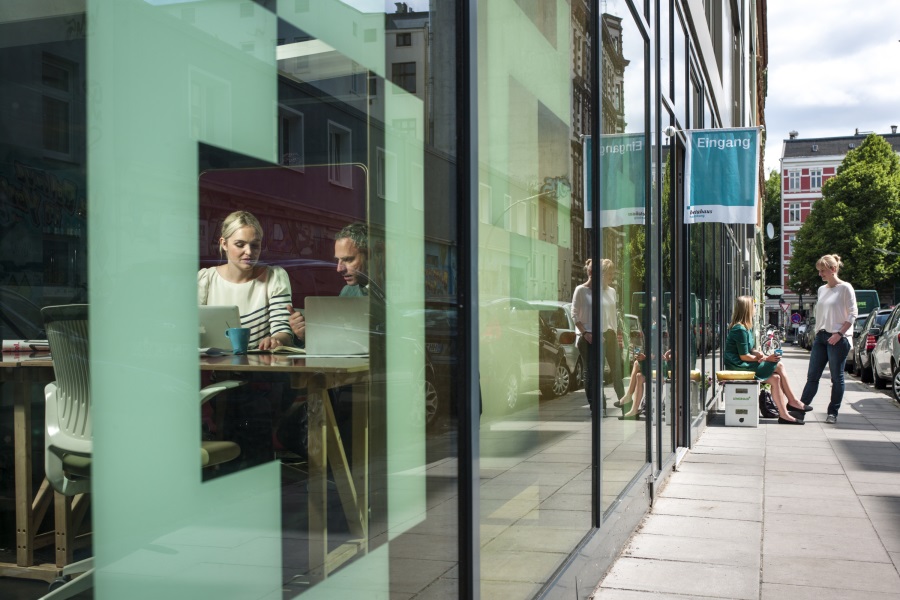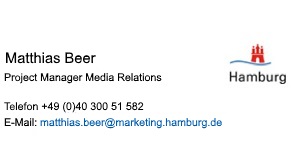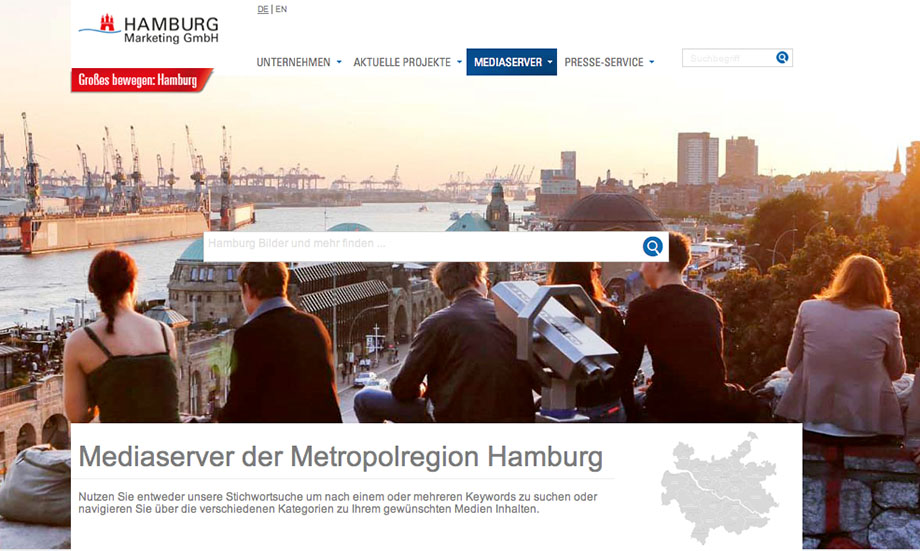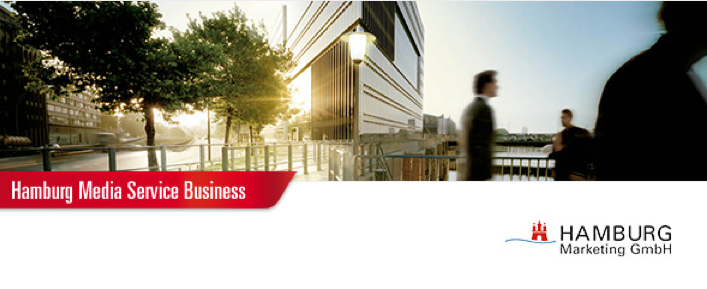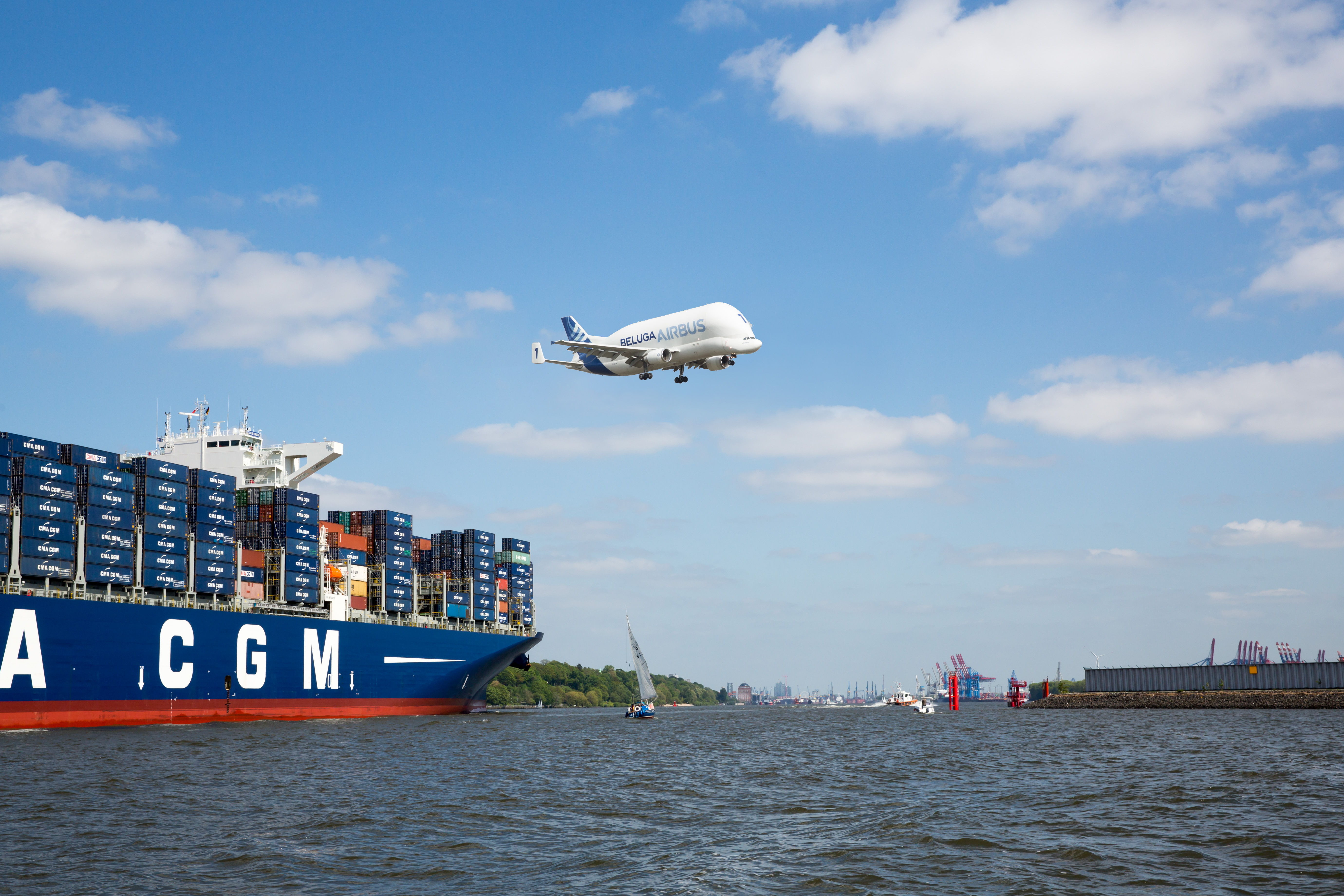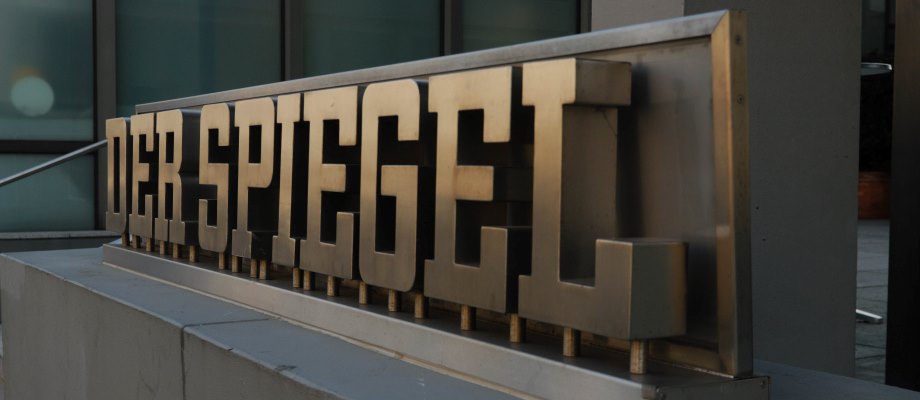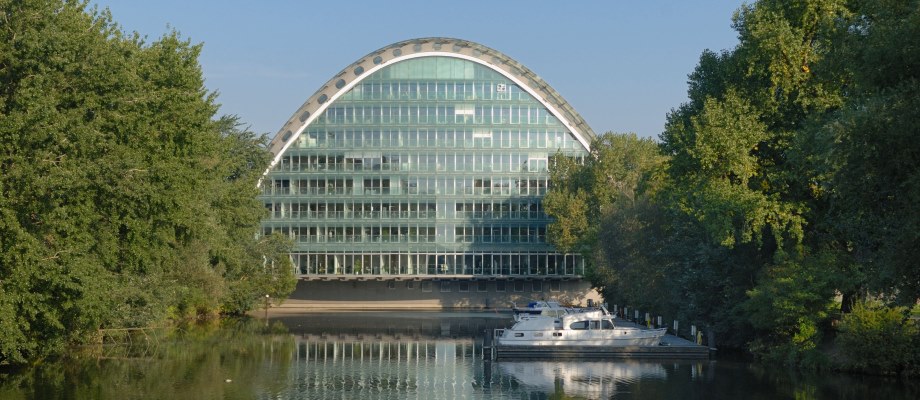Hamburg – the new start-up hub in Germany
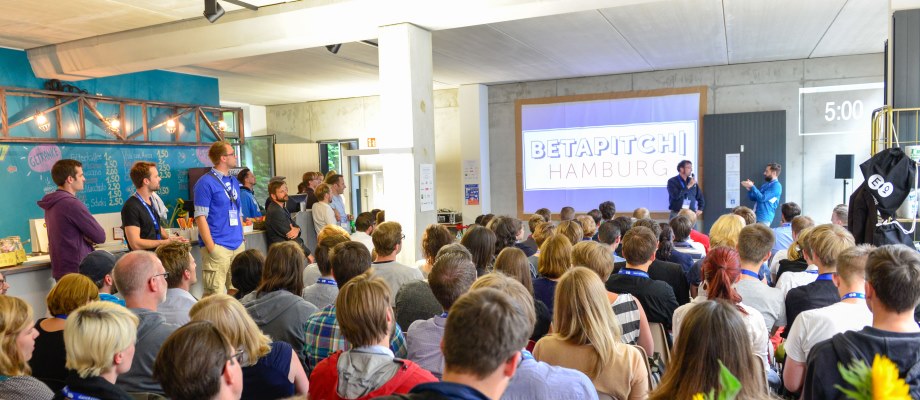
Between the port industry and traditional enterprises, an exciting start-up scene is currently evolving in Hamburg. Entrepreneurs from the Hamburg Metropolitan Region are breaking world records and gathering respectable amounts of investment from abroad.
The co-working space Betahaus in the Schanzenviertel district is one of the most important meeting places for Hamburg’s growing start-up scene. In recent years, Hamburg has seen the evolution of an exciting ecosystem for young entrepreneurs, and the Betahaus is just one out of many co-working spaces that facilitate collaboration between entrepreneurs and provide a creative working environment for start-up businesses. A growing number of pitch events provides start-ups with feedback, public attention and awards – among them the “Betapitch” event at the Betahaus and the “startups@Reeperbahn” event that is part of the Reeperbahn Festival, Europe's biggest festival for the music and digital industries. 2015 saw the lauch of new support programmes such as the Gründerwerft and the Next Media Accelerator to complement existing programmes such as Hanse Ventures.
Creative think tank
Estimates suggest that Hamburg is currently home to more than 300 active start-ups, and more than 400 have already registered with the local Hamburg start-up monitor. Hamburg is the only city in Germany to gather data on the make-up of its start-up scene. The start-up monitor was in fact initiated by the start-up scene itself: by two entrepreneurs who had been promoting Hamburg as a location as part of their private initiative, Hamburg startups. The start-up monitor records a landscape that had been largely disregarded up until then, while also creating a basis for the city to “consider whether start-up funding has been supplied in the right places,” as managing director Sina Gritzuhn puts it.
And here’s a taste of how Hamburg’s start-ups are making a name for themselves: take, for instance, Sonormed – arguably one the city’s most innovative start-ups. With their healthcare device “Tinnitracks” they provide a tinnitus treatment integrated into the patient’s favourite music tracks. In March 2015, Tinnitracks won the SXSW Accelerator prize – one of the world’s most renowned start-up awards. When it comes to acquiring investments, Hamburg’s start-up businesses are also at the forefront: in 2014, marketing specialist Facelift received 15 million US dollars of funding from London – the world’s largest growth investment in the business segment in Europe at the time. And the FinTech start-up Kreditech received US investment totalling 200 million US dollars – the largest amount that was ever invested in the digital financial services industry outside the United States.
Today, Hamburg is so much more than one of Europe’s most modern and largest container ports and the birthplace of some of Germany’s most important publishing houses: Hamburg is the second largest city in Germany and thus an exciting location for B2C activities alone.
B2B businesses feel at home in Hamburg, and ten of the Germany’s 100 companies with the highest turnover have their head offices in Hamburg. The city on the River Elbe is shaped by its long-established trading history, and Hamburg’s potential is also being recognised by US giants from the digital industries: Facebook, Twitter and Google have their German headquarters in Hamburg.
A growing number of Hamburg’s large companies are also willing to make Hamburg a location for European start-up funding: the Otto Group, for instance, Europe's largest online retailer for fashion and lifestyle, has invested millions in the three digit range in investment holdings across ten countries.
Current market leaders in online games, such as Goodgames or Bigpoint, emerged only a few years ago from small start-up businesses. The five largest studios alone now employ around 2,300 people. In recent years, a number of Hamburg start-ups have turned into successful “grown-ups”, among them the online business platform Xing, which generated profits from an early stage and has more than 15 million members today; the website toolbox Jimdo is now among the world’s most successful web hosting services; and MyTaxi, which revolutionised the taxi market long before Uber and received several million euro of investment from Daimler.
It pays off to have your finger on the pulse – and this is also recognised by a growing number of traditional enterprises. To keep in touch with the local start-up scene, corporations such as Gruner + Jahr, Deutsche Presse-Agentur and the Otto Group frequently send staff from their headquarters to the Betahaus.
And they are right in doing so, as Hamburg’s start-up scene promotes an open community and frequently uses its co-working spaces for hosting events. Whenever the Hamburg Startups private initiative hosts its “Mixer” event, the Betahaus is packed to the rafters. Based on their goal of fostering networking and improving visibility, the organisers bring together hundreds of local founders, business angels and supporters. As well as reflecting the size of Hamburg’s entrepreneurial scene, such events also display the scene’s biggest assets: loyalty, mutual support and the exchange of knowledge.
Some of Hamburg’s start-up businesses have been built up by individuals with a corporate background. Many of Hamburg’s founders have an extensive network from the start, and this social capital is an unbeatable locational advantage. And yet Hamburg also attracts talent from abroad, and the city is becoming increasingly popular as a start-up location. Take, for instance, the story of TripRebel: this innovative travel start-up is managed by a team emerging from a Dutch accelerator that chose Hamburg for a good reason: “For us, access to the German travel market – the second biggest in the world – was mandatory, so the decision was then between Hamburg and Berlin. In the end we selected Hamburg because of its quality of life, lively media scene and smaller but very solid start-up environment,” explains Carlos Borges Guimaraes Filho, co-founder of TripRebel.
Carlos aimed to shape Hamburg’s thriving start-up ecosystem, and he arrived in the city at an exciting time, as Hamburg’s start-up scene has experienced rapid growth in recent years. This is also due to support programmes that primarily aim at further vitalising the all-important ecosystem for entrepreneurs. In addition to various networks and institutions, the City of Hamburg has also recognised the innovative strength and economic power of start-up businesses by establishing the “nextMedia StartHub” support office and positioning itself as a scout and facilitator for young entrepreneurs.
Further Information
